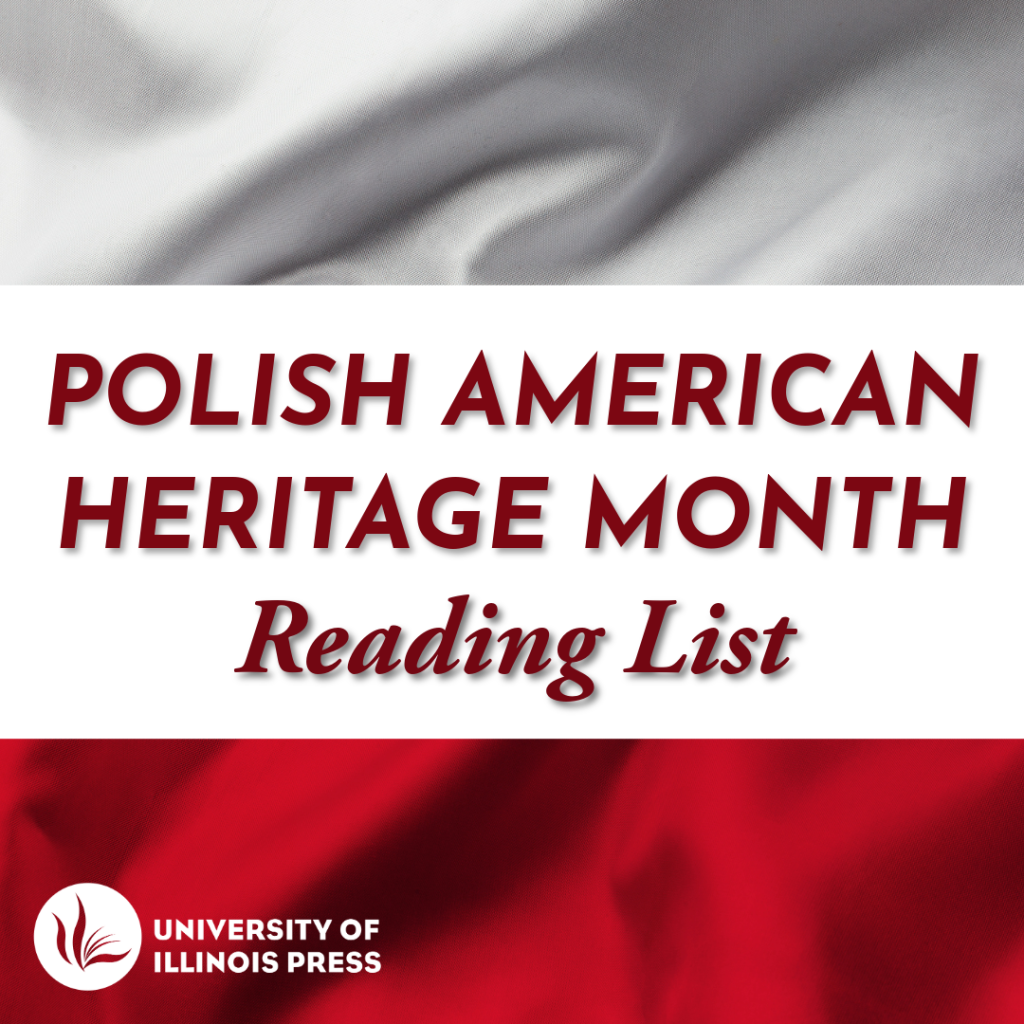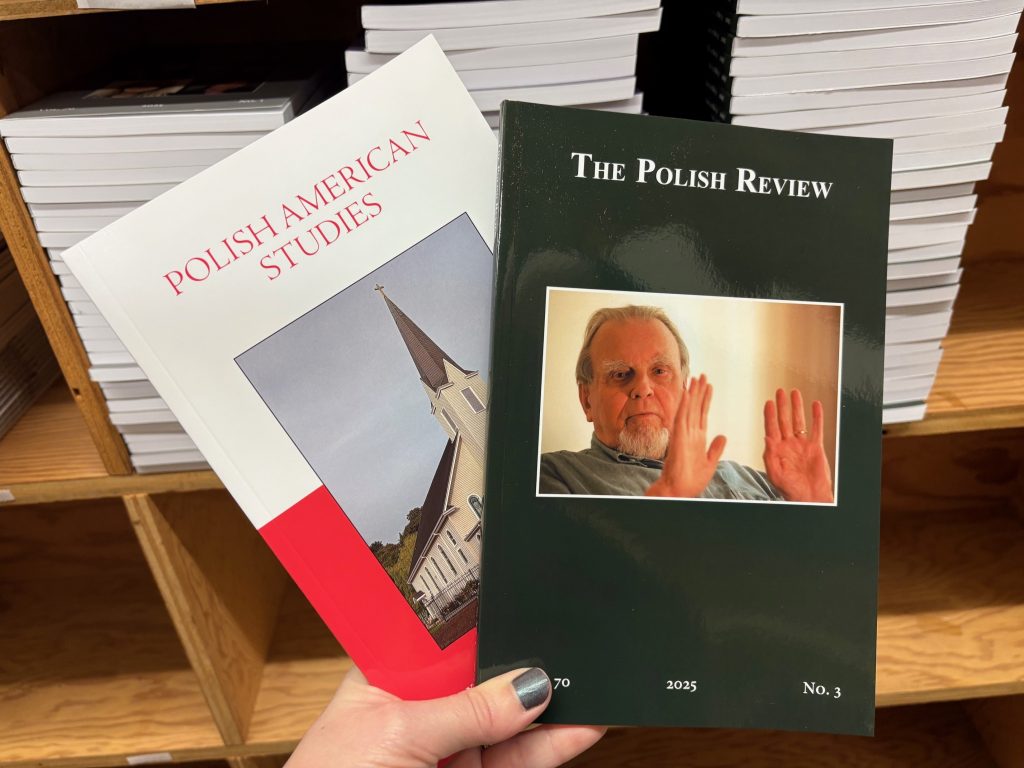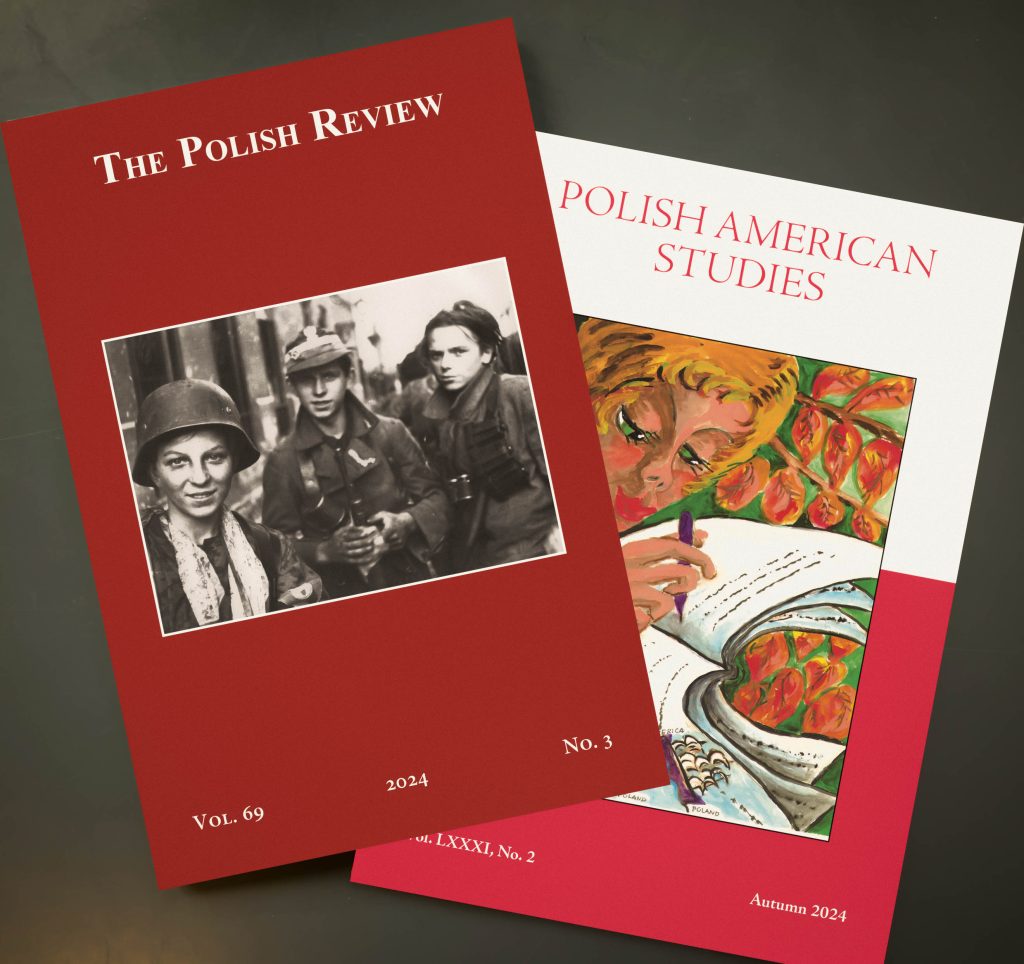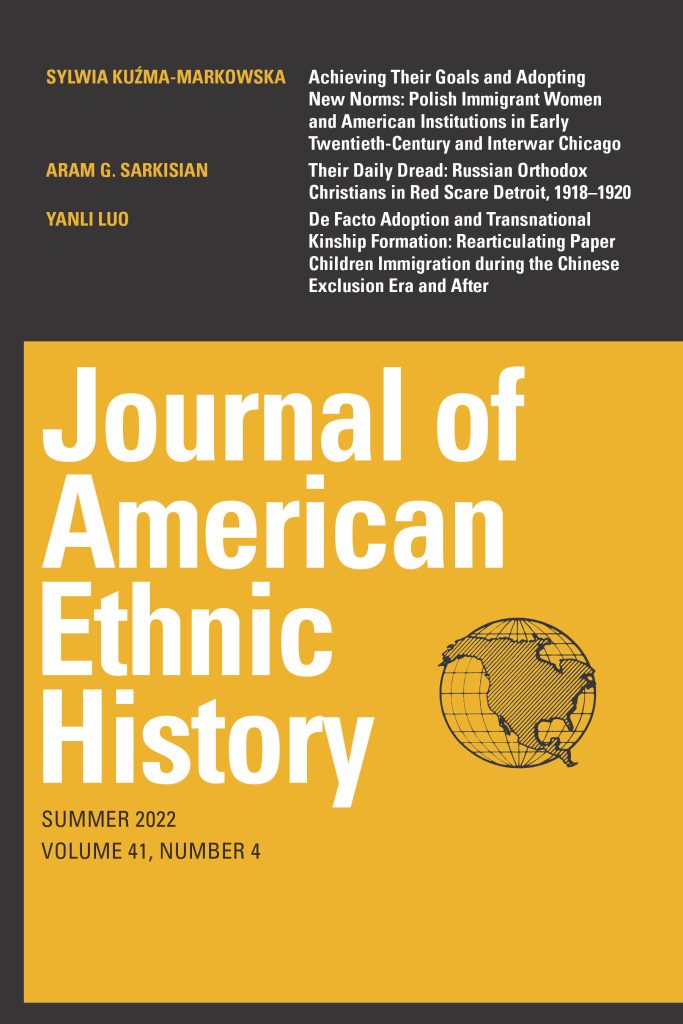Happy Polish American Heritage Month! Join us in celebrating the month once again with a reading list of temporarily free to access and permanently open access articles from Polish American Studies, The Polish Review, and Journal of American Ethnic History.
Polish American Studies
Polish American Studies is the Polish American Historical Association’s interdisciplinary, double-blind refereed scholars journal. The editor welcomes scholarship including articles, edited documents, and related materials with all aspects of the history and culture of Poles in the Western Hemisphere.
Check out more about two open access articles from the most recent issues of Polish American Studies below:
“Unfolding the Memory of World War II: Refugee Experience in John Z. Guzlowski’s Echoes of Tattered Tongues: Memory Unfolded and Who I Am: Lives Told in Kitchen Polish” by Izabella Kimak, from Vol. 82, Iss. 2 (PERMANENTLY OPEN ACCESS)
This article offers an analysis of two publications by John Guzlowski: a poetry and prose collection titled Echoes of Tattered Tongues: Memory Unfolded (2016) and the recently published Who I Am: Lives Told in Kitchen Polish (2024), a selection of columns that originally appeared in Chicago’s Polish-language newspaper Dziennik Zwiazkowy. The concepts of memory studies are implemented throughout to draw attention to the role of Guzlowski’s parents’ wartime and refugee experiences as a driving force behind their son’s creative work, which impacts heavily on both the content and form of his texts.
“Poles in Seattle 1890–2020: Toward a Conceptualization of the Immigrant Experience” by Dorota Praszalowicz, from Vol. 82, Iss. 1 (PERMANENTLY OPEN ACCESS)
This article provides an overview of Polish Americans in Seattle, Washington, its past and present. It lists the streams of Polish immigration and presents the main ethnic institutions. Each immigration stream infused the local ethnic community with new energy, and each contributed to the process of its reinvention. The achievements of Polish Americans in the Pacific Northwest are discussed in the context of the Polish diaspora in the United States and in the context of recent conceptualizations of the migration experience.
The Polish Review
The Polish Review, a multidisciplinary, peer-reviewed scholarly quarterly devoted to Polish topics, is the official journal of The Polish Institute of Arts and Sciences of America. Launched in 1956, The Polish Review has established itself as one of the most distinguished journals in the various fields of Polish studies, a publication that encourages lively scholarly exchange and cutting-edge innovation.
Read more about two articles from recent issues:
“‘My Homeland, Europe’: On the Forgotten Ode by Czeslaw Milosz” by Pawel Bem and Jakub Ziguras, Vol. 70, Iss. 3 (FREE TO ACCESS UNTIL DEC. 31, 2025)
This article is dedicated to a poem by Czeslaw Milosz from the 1930s, unknown for many years. It was discovered by the author of the article in the archival collection of Milosz’s papers at the Beinecke Rare Book and Manuscript Library. On the basis of concrete textual elements, the authors attempt to determine the date on which the preserved typescript was created and undertake an analysis of the poem with regard to the inspirations which must have accompanied the coming into being of the work.
“Czeslaw Milosz’s Topicality” by Marek Bernacki and Gerard T. Kapolka, Vol. 70, Iss. 3 (FREE TO ACCESS UNTIL DEC. 31, 2025)
In this review article, Bernacki and Kapolka discuss Rodzina Miloszow i rody pogranicza polsko-litewskiego: Studia [The Milosz family and the families of the Polish-Lithuanian borderland: Studies], edited by Andrzej Baranow, Jaroslaw Lawski, and Anna Romanik, and Czeslaw Milosz i wiek XXI [Czeslaw Milosz and the twenty-first century], edited by Joanna Zach and Karina Jarzynska.
“Colonial Connections, Postcolonial Insecurities: Polish Officers in British West Africa during World War II” by Piotr Puchalski, Vol. 70, Iss. 2 (PERMANENTLY OPEN ACCESS)
The article uses a postcolonial lens to analyze the triangular relationship between the Polish officers commissioned to the Royal West African Frontier Force, their British colleagues, and African inferiors in the years 1941–1943. Puchalski argues that despite the disparaging racial classification by the British, many Polish officers in West Africa aspired to become a sort of colonial intermediaries used not only for essential practical tasks during wartime but also to acquire the sympathy of Africans for the Allied cause. Others rejected any colonial ambitions altogether, becoming unexpected critics of the established system, but also of their lost homeland.
Journal of American Ethnic History
The Journal of American Ethnic History is the official journal of the Immigration & Ethnic History Society. It addresses various aspects of North American immigration history and American ethnic history, including background of emigration, ethnic and racial groups, Native Americans, race and ethnic relations, immigration policies, and the processes of incorporation, integration, and acculturation.
Read a free to access article from the Journal:
“Achieving Their Goals and Adopting New Norms: Polish Immigrant Women and American Institutions in Early Twentieth-Century and Interwar Chicago” by Sylwia Kuzma-Markowska, Vol 41, Iss. 4 (FREE TO ACCESS UNTIL DEC. 31, 2025)
This paper examines paradoxes and ambiguities in the interactions of Polish immigrant women with American institutions in early twentieth-century and interwar Chicago. The author analyzes three types of case histories—those of mistreated wives, “wayward” daughters, and out-of-wedlock mothers—with a particular focus on gendered and family-related norms as well as the relations between Polonia mothers and daughters as showcased in their interactions with American private and public institutions.
Find Out More
- Want to access more Polish Studies articles?
- Individual Subscriptions to The Polish Review can be made through the PIASA website here.
- Individual Subscriptions to Polish American Studies can be made through the University of Illinois Press website here.
- Individual Subscriptions to Journal of American Ethnic History can be made through the University of Illinois Press website here.
- To recommend either of these titles to your library, fill out this Library Request Form.
- Ready to see your work published?
- Check out our other European Studies journals: Italian Americana, Italian American Review, Italica, Diasporic Italy, and Journal of Finnish Studies
- Check out last year’s Polish American Heritage Month blog post
- Listen to our podcast interviews:
- Individual Subscriptions to Journal of American Ethnic History can be made through the University of Illinois Press website here.




